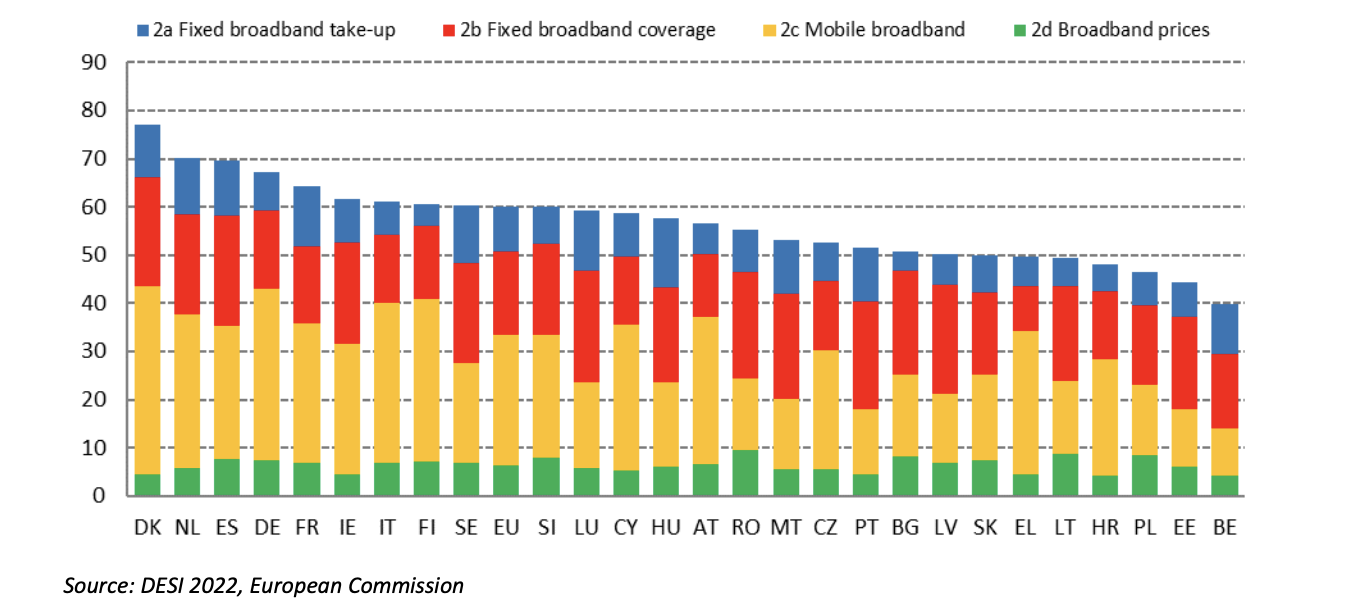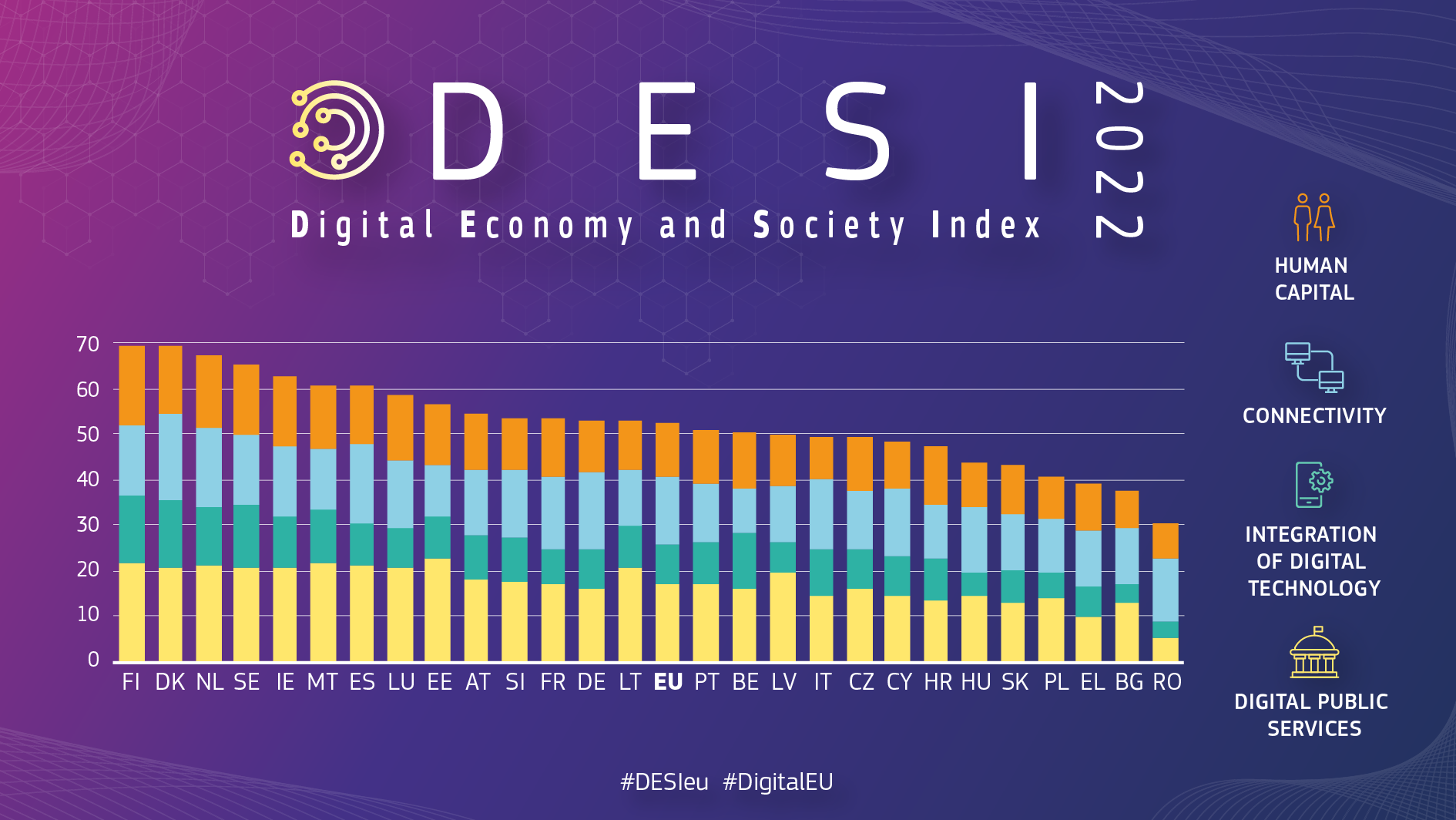Belgium has performed poorly in the latest report of EU progress on digitisation carried out by the European Commission, with the lack of digital skills and infrastructure driving its low ranking.
Since 2014, the Commission has published annual Digital Economy and Society Index (DESI) reports, which highlight the key digital policy areas in which individual Member States are underperforming. When it comes to connectivity, Belgium's performance was the worst among all EU countries.
"In the DESI report, Belgium ranks 27th in terms of connectivity: our country is in the last place. This is totally unacceptable!" said Mathieu Michel, State Secretary for Digitalisation.
In terms of connectivity, for which Denmark had the highest score, the report found no progress in Belgium's 5G spectrum or 5G coverage – two areas that have increased significantly in the EU. The country also scores very low on fibre coverage.

Belgium has ranked lowest when it comes to connectivity. Credit: DESI
While fibre coverage has doubled in the last five years across the EU (with Latvia, Spain, Portugal, Romania and Bulgaria leading with at least 85% coverage), Belgium, Germany and Greece are lagging behind, with below 20% coverage.
"If we want to restore our credibility and boost our foreign investments, we must react quickly," Michel added.
To make matters worse, Belgium (alongside Croatia and Greece) has the highest broadband prices.
Lacking ICT graduates and digital skills
The list ranks EU countries on their level of digitisation and analyses their progress over the last five years. This year, Belgium ranked 16th – down four places from 2021, largely as a result of its poor performance when it comes to digital skills and, especially, digital infrastructure.

Credit: DESI
The chronic lack of ICT graduates in Belgium, which hasn't increased since 2016, was highlighted in the report. According to one study by Belgian employer's organisation Agoria, Belgium will need 600,000 more IT profiles by 2030 to make up for this shortage.
"I do not think that those responsible are aware of the scale of this collective challenge. It is vital that they wake up to the importance of this issue if we want to achieve an 80% employment rate and maintain our social model," Michel said.
Companies performing better
Although the overall digitisation in Belgium is below the EU average, the country does rank well (sixth place) when it comes to the integration of digital technology by its companies and SMEs.
"Most notable is the number of companies using the cloud and the number of SMEs selling online, which is well above the EU average," Michel wrote in a statement.
Related News
- Belgium's treasury nets €1.4 billion from sale of 5G licenses
- Despite new regulations, telecoms in Belgium remain expensive
The country also performs well in terms of people using e-government, an online platform for government services, of which the number of users has increased significantly: 74% of Belgians have already contacted their administration online, compared to 65% on average in Europe.
Michel stressed that the ranking should not be something to be taken lightly and that Belgium must continue to work to become a so-called "Smart Nation."
"The digitalisation of our country based on a coordinated supported and approved digital strategy should help achieve an 80% employment rate and ensure the long-term sustainability of our social security system."

